Community Benefits from Renewables – Power, Fairness & Local Democracy

The planned exponential growth of renewable energy and associated net zero developments present a huge opportunity for communities to secure financial stability and control within a landscape of reduced and piecemeal public funding. Although many of our members are in receipt of community benefit funds (CBFs), current practices do not place communities at the centre, and many are struggling with inconsistent approaches from developers, a lack of capacity to properly engage in negotiations and exclusion from decision-making processes.
With this in mind, DTAS welcomed the opportunity to respond on behalf of our members to the Scottish Government’s consultation on Community Benefits from Net Zero Energy Developments. We made sure that our members’ voices were not just included but drove the conversation by conducting a member-wide survey which received over 60 responses and holding a member-only discussion event.
During these discussions our member’s stressed the need to strengthen the Good Practice Principles for onshore wind and extend that to offshore renewables and other forms of net zero technologies, consider a national distribution of community benefits, and increase the amount of shared and community ownership of renewable energy.
What Our Members Shared
In our December 2024 survey and March 2025 consultation event, members spoke clearly and with purpose. Here’s what we heard:
- CBFs are essential: Almost a quarter of our members already receive CBFs and use it to support everything from housing to youth work to local climate action. Those that do not receive such vital funding noted that it would make a monumental difference to the services they can provide for their communities.
- The system isn’t working for everyone: Members highlighted inconsistent developer practice and limited capacity to engage in complex negotiations within some communities. Meaning that they often lose out on opportunities or struggle to secure the best deal.
- Local democratic control. Communities are best placed to decide how funds are spent; however, this is not always the case, and many members voiced challenges they have with developer-imposed conditions on the use of CBFs. Communities must also be properly supported and recognised as equal partners to participate in decision-making.
- Full and Shared community ownership of renewable developments has strong support, but barriers such as finance, legal complexity and a lack of early engagement make it out of reach for most.
What DTAS Is Calling For
Grounded in member voices and feedback, we’re advocating for a more transparent, consistent and community-led system, involving:
- Mandatory CBFs for all technologies—onshore, offshore, and beyond: with mandatory reporting, and audit by the SG to check that developers are complying with GPPs and that communities can realise their priorities.
- A meaningful benchmark value: We propose a minimum of 5% of gross revenue per year for offshore wind. For onshore technologies we recommend a common method for calculating CB, as a proportion of revenue and including a CB floor with a guarantee of £X MW per year (this should be above the current £5,000 MW amount). These benchmarks should be index-linked and increase every year in line with inflation.
- Balancing local impact and national need: while member opinions were divided on the issue of national distribution, through discussions many recognised the inequities within the current system and the benefit of a mechanism for regional and national distribution if it retained local control and did not reduce funding for directly impacted communities.
- Stronger Good Practice Principles, with local communities in the lead.
- Greater support and finance for full and shared ownership opportunities and introducing a requirement for developers to offer credible shared ownership to communities.
- Local authority involvement: members were wary of allowing local authorities to manage funds and had mixed views of other intermediaries managing or distributing CBFs. The core principle was that well-resourced and funded community anchor organisations would be best places to represent their communities.
- We’re also backing a Scottish Community Wealth Fund that could help communities across the country to invest in long-term assets and support a just, equitable transition. With the caveat that communities must be included in this decision, and local impact is still prioritised.
At the heart of our members’ work is local democracy in action, which is why our response emphasises the need to strengthening local democracy through local democratic reforms.
Development trusts are accountable to their communities. They listen, plan, deliver—and they know what works. Our consultation responses make it clear: funding decisions must be rooted in community-led governance, not imposed externally by developers or local authorities.
To deliver on this community-led governance development trusts must be properly resourced and staffed, with long-term secure and sustainable funding. By investing in community capacity, we will deliver better outcomes and strengthen the foundations of local democracy and achieve community wealth building goals across Scotland.
Ultimately, DTAS is of the view that community or shared ownership of on and offshore renewables is the best option to benefit communities the most. Private developers’ primary responsibility is to increase profit for their shareholders, not to our communities. Local people stand to benefit the most if we own our energy infrastructure, but we also recognise and will lobby for improvements in the current CBF models. We will continue to push for an approach that matches our members’ ambition, with the structures, resources, and trust to ensure that renewables deliver not just clean energy, but lasting community benefit.
We hope that the points we have put forth in this consultation response will lead to significant progress towards our vision of a fairer, greener, energy system that puts power in the hands of people.
Read our full response here:
DTAS Consultation Response – CBFs from Net Zero Energy Developments
Read the summaries from our member survey and event here:
DTAS CBF and Shared Ownership Survey 2024 Findings Full Report
DTAS CBF Consultation Event Summary 2025
We also support this information that is included within this consultation response from Strathclyde Institute for Sustainable Studies – Enhancing Community Benefit from Community CBFs
– Pauline Smith
Chief Executive, Development Trusts Association Scotland
